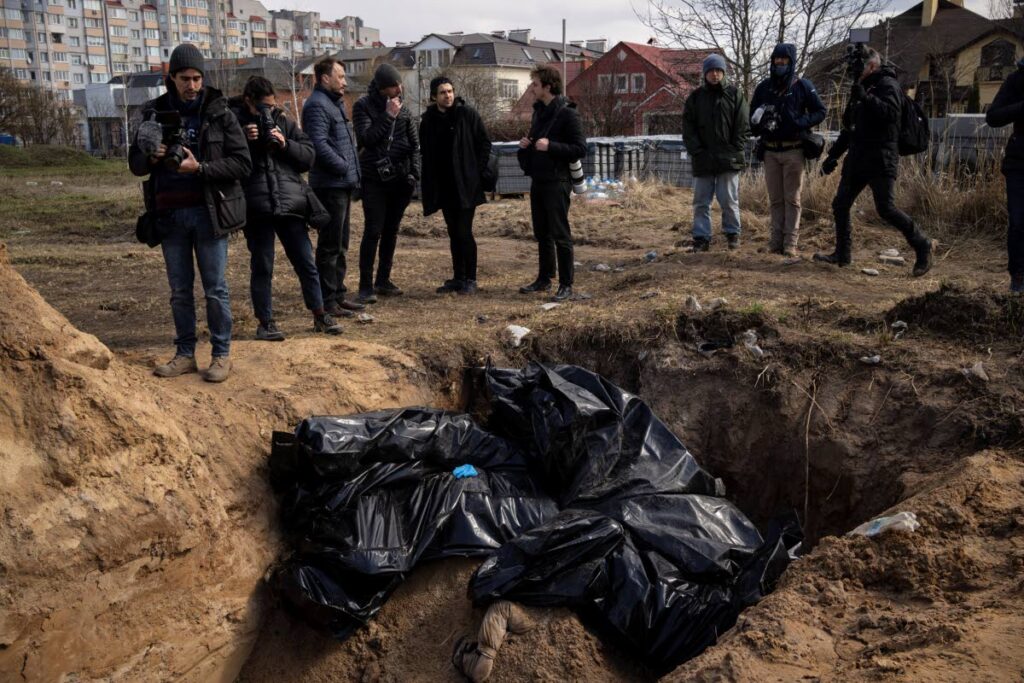Trying war crimes

THE IMAGES are truly sickening. Bodies scattered in streets. The executed, hands bound behind their backs. Mass graves. Corpses in backyards. Wounded children in hospitals, dying.
These are some of the horrors coming to light as Russian troops withdraw from parts of northern Ukraine in a new stage of a war that the world is praying will soon be over.
All of it has triggered renewed condemnation of Russia and has heightened pressure on western nations to escalate sanctions against that country even further.
But it has also underlined the need for entities such as the International Criminal Court (ICC). That court has a vital role to play in policing war crimes and, in the process, supporting global stability and peace.
In response to global outrage over the latest reports, the Kremlin has accused the West of fabricating evidence and alleged “provocation.” But no amount of spin and subterfuge can obscure the fact that an inevitable consequence of any armed invasion on a peaceful, sovereign state is civilian suffering.
It is precisely because of the need to get to grips with the situation that organisations like the ICC are essential. And yet, the challenges such bodies face are increasingly many.
It starts with the fact that some countries are yet to formally accede to the jurisdiction of the court.
A good example is the US, which has had what can safely be described as a roller-coaster relationship with the court. The relationship has veered from outright animosity under Donald Trump (who placed sanctions on ICC personnel) to Barack Obama and Joe Biden’s more open approach.
This year marks exactly two decades since the court was established. Yet despite such a long-standing pedigree, many may not be familiar with its operations. (The acronym ICC in some cricket-loving countries might even be more readily associated with cricket’s international governing body, the International Cricket Council.)
Trinidad and Tobago citizens, however, arguably have a vested interest in this court. This country is not only a signatory to the Rome Statute, but played a pivotal role in the affairs of the ICC since its inception. It was a diplomatic proposal from a former prime minister, the late ANR Robinson, that paved the way for the court’s formation.
Several legal luminaries from this country have also served as ICC judges, including former president Anthony Carmona and former director of public prosecutions (and now judge) Justice Geoffrey Henderson. Former judge Althea Violet Alexis-Windsor is currently a jurist at the ICC.
Though in operation for two decades and staffed with talented officials, the ICC has handed down less than a dozen convictions. Only half of its warrants have been enforced.
This country must join a global movement to give the court what it needs to fulfil its essential mandate.


Comments
"Trying war crimes"